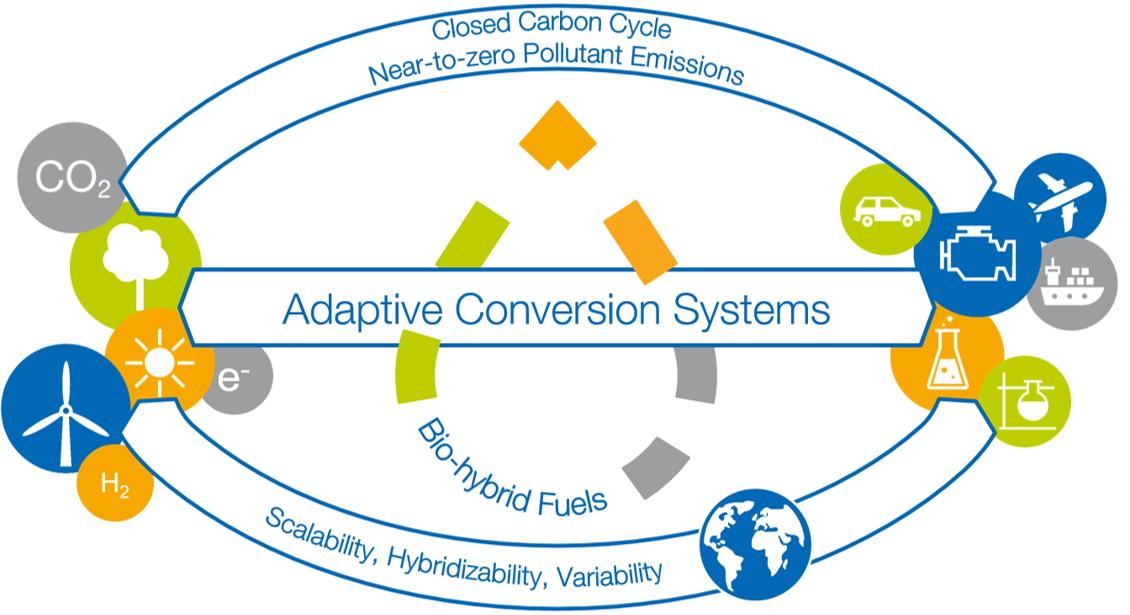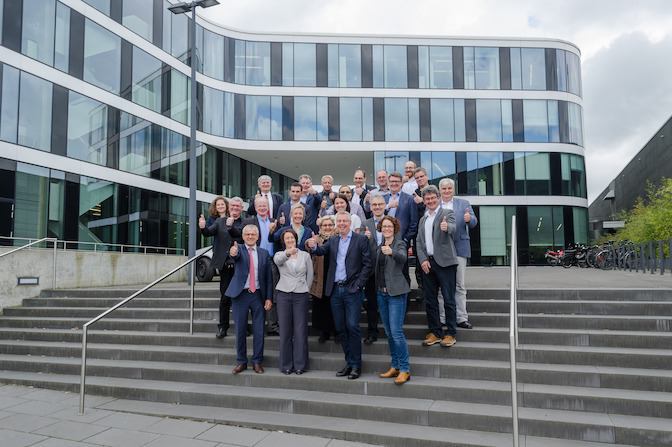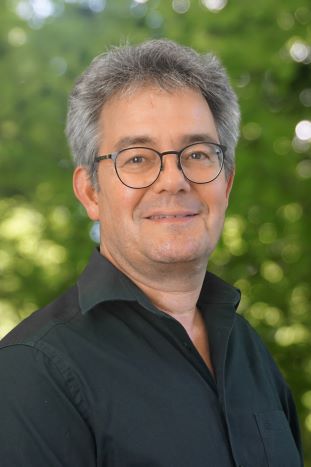
Project duration: 2019–2025
Funding: DFG Excellence Initiative
Princinple investigator for the subprojects at Bio5, RWTH Aachen
- Dr. Martina Roß-Nickoll (Deputy-Professorship, PI since October 2019)
- Prof. Dr. Henner Hollert (PI, since his transition to Goethe University Frankfurt in October 2019 associated PI)
- Dr. Miaomiao Du (Young Research Group leader)
Research Fellows and PhD students
- Dr. Sebastian Heger
- MSc Carsten Braun
- MSc Jonas Daniel
Cooperation Partners
- Lehrstuhl für Verbrennungskraftmaschinen und Institut für Thermodynamik (Prof. Pischinger, Speaker Cluster)
- Lehrstuhl für Technische Chemie und Petrolchemie (Prof. Leitner, Speaker Cluster)
- Lehrstuhl für Technische Thermodynamik (RWTH Aachen)
- Lehrstuhl für Angewandte Mikrobiologie (Prof. Dr. Lars Blank)
- Chair of Chemical Process Engineering AVT (Prof. Wessling)
- Chair for Operations Management OM (Prof. Walther)
- Chair for Communication Science (Prof. Ziefle)
- MPI für Kohleforschung
- FZ Jülich
- Approx. 70 scientists from more than 20 other institutes
Project webpage: https:/www.fuelcenter.rwth-aachen.de/
Project description
The increasing availability of non-fossil energy technologies opens unprecedented possibilities to re-design the interface of energy and material value chains towards a sustainable future. The fundamental research in the Cluster of Excellence “The Fuel Science Center – Adaptive Conversion Systems for Renewable Energy and Carbon Sources" (FSC) aims to integrate renewable electricity with the joint utilization of bio-based carbon feedstocks and CO 2 to provide high-density liquid energy carriers (“bio-hybrid fuels"), which enable innovative engine concepts for highly efficient and clean combustion. FSC will generate fundamental knowledge as well as novel scientific methodologies to replace today's fossil fuel-based static scenario by adaptive production and propulsion systems that are based on renewable energy and carbon resources under dynamic system boundaries.
Current research on renewable fuels is focused on fuel replacements for present-day engine technology that are either biofuels from non-food biomass or e-fuels from CO2 capture and utilization. FSC goes far beyond this approach by defining the scientific basis for the development of bio-hybrid fuels through integrated design of production and propulsion systems. The targeted technologies are adaptive to anticipate the increasing diversification of energy supply and carbon feedstock availability for a mobility sector in transformation. The (electro‑)catalytic production of fuels as well as chemicals is envisaged as an important enabler for flexible and economic value chains. Molecularly controlled combustion systems are targeted to maximize efficiency and minimize emissions during the recovery of the chemically stored renewable energy. Methodological approaches will be developed to assess and ultimately predict the environmental impact, economic viability, and societal relevance of the technical developments.
FSC strengthens disciplinary competences in natural sciences, engineering sciences, and social sciences and converges them in a dynamic team science approach. Forward-integration occurs from fundamental science to the complex systems of fuel production, mobility, and transportation. Simultaneously, system-level information is propagated back by inverse methodologies to enable an integrated molecular and machine design.

FSC capitalizes on achievements of the Cluster of Excellence "Tailor-Made Fuels from Biomass (TMFB)“ to act as a structuring element at RWTH Aachen University and its partner institutions. Together with the Forschungszentrum Jülich and the two Max Planck Institutes at the Campus Mülheim, a world-class research environment will be established, which is embedded in a network of strategic partnerships with globally leading research institutions and companies. Joint appointment models for junior research groups, tenure track and lighthouse professorships will create attractive career paths within the German academic landscape.

The Cluster of Excellence „The Fuel Science Center – Adaptive Conversion Systems for Renewable Energy and Carbon Sources" (FSC) is an unique and interdisciplinary research cluster aiming towards the integration of renewable electricity with the joint utilization of bio-based carbon feedstocks and CO2 to provide high-density liquid energy carriers (“bio-hybrid fuels"). These fuels enable innovative engine concepts for highly efficient and clean combustion for a sustainable future. Of the total number of 63 projects that are part of this cluster, two projects will be conducted in the Department of Ecosystem Analysis at RWTH Aachen University in close cooperation with E3T at Goethe University in Frankfurt. In this context, a Junior Research Group (Dr. Miaomiao Du, „Toxicity assessment and prediction“) has be established and funded by the FSC.
Subprojects at RWTH Aachen University (Institute of Environmental Research) in close Cooperation with E3T at Goethe University in Frankfurt
The effects of bio-hybrid fuel exhaust on human health
Biofuels are considered to be potential alternatives for fossil fuels due to their promising benefits, therefore the research activities on biofuels are increasing rapidly during last few years. Recently, concerns have increased regarding the potential adverse impacts of biofuels on the environment and human health. However, limited publications are available regarding the effects of biofuels or their emissions on the environment and human health. One main reason for developing renewable bio-hybrid fuels (derived from biomass and CO2) in the CoE “FSC" is to reduce the harmful effects of fossil fuel on both the environment and human health. The long-term vision is to find a sustainable approach for the production and usage of bio-hybrid fuels as well as to develop bio-hybrid fuels with no adverse effects to human health. The exhaust emissions from biofuels have been extensively characterized under field and laboratory conditions, but there are a limited number of studies regarding the effects of biofuel exhaust on human health. The goal of this project is to establish a rapid, in vitro and relatively inexpensive method for the early identification and characterization of adverse effects of biofuel exhaust on human health.
FSC aims to develop new and innovative technical solutions to valorize renewable energy and alternative carbon feedstocks into liquid energy carriers for CO2-neutral and near-to-zero emission propulsion systems. Our subproject will generate fundamental knowledge as well as reliable test strategies for assessing the potential effects of bio-hybrid fuel exhaust on human health. Additionally, this project will provide invaluable supporting information needed to achieve near-to-zero human health impacts from emission, and will aid in the incorporation of human health impacts into Life Cycle Assessments (LCA) for bio-hybrid fuels.
Green Toxicology for the Prediction of Fuel Mixtures
Compared to the ecotoxicological investigations of single biofuel candidates in the TMFB, this project will target the ecotoxicological investigation of biohybrid fuel mixtures and subsequent prediction of mixture effects of varying fuel mixtures. In first proof-of-concept experiments, insight on mixture effects for binary biofuel mixtures could be generated, revealing the high relevance of mixture toxicity for bio-hybrid fuels. However, the investigation of biohybrid fuel mixtures and the prediction of varying composition of biohybrid fuels differ from the approaches for investigation of environmental samples. In particular the fast and prospective prediction of varying (fuel) mixtures during the fuel development requires a novel approach and represents a challenge.
Ecotoxicological information obtained either by experiments or by predictions will then be integrated in a predictive design method for a sustainability assessment based on Life-Cycle Assessment. This combination of experimental and predictive data, as well as a LCA-based prediction method could lead to a so called “Comprehensive Environmental Assessment", which enables an early and comprehensive evaluation of potential environmental impacts of bio-hybrid fuels.
Selected Publications
- Sebastian Heger, Julia Brendt, Henner Hollert, Martina Roß-Nickoll & Miaomiao Du (2021): Green Toxicological Investigation for Biofuel Candidates" Science of the Total Environment, in press Brendt, Julia, Carina Lackmann, Sebastian Heger, Mirna Velki, Sarah E. Crawford, Hongxia Xiao, Beat Thalmann, Andreas Schiwy, and Henner Hollert. 2021. 'Using a high-throughput method in the micronucleus assay to compare animal-free with rat-derived S9', Science of The Total Environment, 751: 142269.
- Heger, S., K. Bluhm, M. M. Du, G. Lehmann, N. Anders, D. Dechambre, A. Bardow, A. Schaffer, and H. Hollert. 2018. 'Aquatic toxicity of biofuel candidates on Daphnia magna', Ecotoxicology and Environmental Safety, 164: 125-30.
- Heger, S., M. M. Du, K. Bauer, A. Schaffer, and H. Hollert. 2018. 'Comparative ecotoxicity of potential biofuels to water flea (Daphnia magna), zebrafish (Danio rerio) and Chinese hamster (Cricetulus griseus) V79 cells', Science of The Total Environment, 631-632: 216-22.
- Bluhm, K., S. Heger, R. Redelstein, J. Brendt, N. Anders, P. Mayer, A. Schaeffer, and H. Hollert. 2018. 'Genotoxicity of three biofuel candidates compared to reference fuels', Environmental Toxicology and Pharmacology, 64: 131-38.
- Heger, S., K. Bluhm, J. Brendt, P. Mayer, N. Anders, A. Schaffer, T. B. Seiler, and H. Hollert. 2016. 'Microscale In Vitro Assays for the Investigation of Neutral Red Retention and Ethoxyresorufin-O-Deethylase of Biofuels and Fossil Fuels', Plos One, 11.
- Bluhm, K., S. Heger, T. B. Seiler, A. V. Hallare, A. Schaffer, and H. Hollert. 2012. 'Toxicological and ecotoxicological potencies of biofuels used for the transport sector-a literature review', Energy & Environmental Science, 5: 7381-92.
- Heger, S., K. Bluhm, M. T. Agler, S. Maletz, A. Schaffer, T. B. Seiler, L. T. Angenent, and H. Hollert. 2012. 'Biotests for hazard assessment of biofuel fermentation', Energy & Environmental Science, 5: 9778-88.
Contact

Goethe University Frankfurt
Biologicum, Campus Riedberg
Max-von-Laue-Str. 13
60438 Frankfurt am Main, Germany
Room: 3.319
Phone: +49 (0)69 798 42171
Fax: +49 (0)69 798 42161
Email: hollert(at)bio(dot)uni-frankfurt(dot)de
Former Affiliation:
http://www.bio5.rwth-aachen.de
- Aktuelles und Presse
- Pressemitteilungen
- Öffentliche Veranstaltungen
- Uni-Publikationen
- Aktuelles Jahrbuch
- UniReport
- Forschung Frankfurt
- Aktuelle Stellenangebote
- Frankfurter Kinder-Uni
- Internationales
- Outgoings
- Erasmus / LLP
- Goethe Welcome Centre (GWC)
- Refugees / Geflüchtete
- Erasmus +
- Sprachenzentrum oder Fremdsprachen
- Goethe Research Academy for Early Career Researchers
- Forschung
- Research Support
- Forschungsprojekte, Kooperationen, Infrastruktur
- Profilbereich Molecular & Translational Medicine
- Profilbereich Structure & Dynamics of Life
- Profilbereich Space, Time & Matter
- Profilbereich Sustainability & Biodiversity
- Profilbereich Orders & Transformations
- Profilbereich Universality & Diversity






